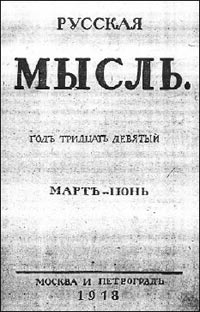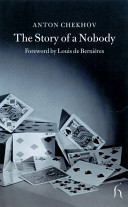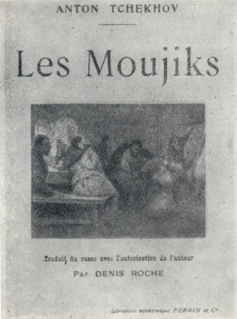| Author | Apollon Maykov |
|---|---|
| Original title | Княжна |
| Country | Russia |
| Language | Russian |
| Genre | Poem |
Publication date | 1878 |
| Media type | Print (Hardback & Paperback) |
The Princess (Russian : Княжна, Knyazhna) is a poem by Apollon Maykov first published in the January 1878 issue of The Russian Messenger . It told the story of a young Russian girl belonging to a noble family who joined a group of radical youth fighting against the repressive state. The poem, condemned by the Russian literary left of the time, in retrospect is seen as a strong political statement attacking both the corrupt political system of mid-19th-century Russia, based on serfdom and the violent methods of undermining it, as professed by the 'nihilistic' youth of the time. [1]

Russian is an East Slavic language, which is official in the Russian Federation, Belarus, Kazakhstan and Kyrgyzstan, as well as being widely used throughout Eastern Europe, the Baltic states, the Caucasus and Central Asia. It was the de facto language of the Soviet Union until its dissolution on 25 December 1991. Although, nowadays, nearly three decades after the breakup of the Soviet Union, Russian is used in official capacity or in public life in all the post-Soviet nation-states, as well as in Israel and Mongolia, the rise of state-specific varieties of this language tends to be strongly denied in Russia, in line with the Russian World ideology.

Apollon Nikolayevich Maykov was a Russian poet, best known for his lyric verse showcasing images of Russian villages, nature, and history. His love for ancient Greece and Rome, which he studied for much of his life, is also reflected in his works. Maykov spent four years translating the epic The Tale of Igor's Campaign (1870) into modern Russian. He translated the folklore of Belarus, Greece, Serbia and Spain, as well as works by Heine, Adam Mickiewicz and Goethe, among others. Several of Maykov's poems were set to music by Russian composers, among them Rimsky-Korsakov and Tchaikovsky.
The Russian Messenger or Russian Herald has been the title of three notable magazines published in Russia during the 19th century and early 20th century. Since 1991, in Moscow, a new publication named the Russian Messenger has appeared once again. It is published weekly and its editor-in-chief from 1991-2013 was Alexei Senin, from 2014 Oleg Platonov.












